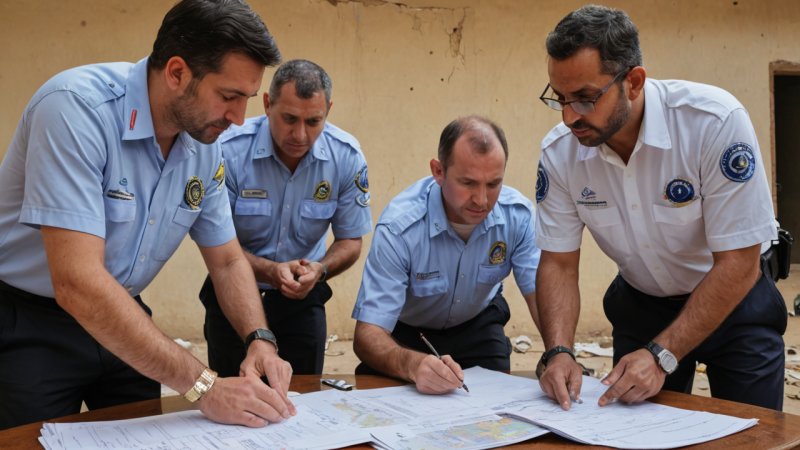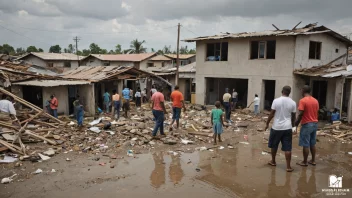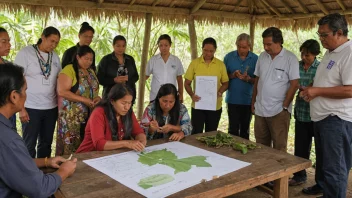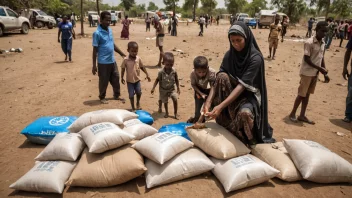As the frequency and intensity of natural disasters increase, the need for effective disaster relief operations has never been more critical. However, these operations are not just about delivering aid; they are also fraught with complex legal considerations that can significantly impact their effectiveness. Understanding the legal landscape is essential for organizations and individuals involved in disaster relief, as it helps ensure compliance with national and international laws, protects the rights of affected populations, and ultimately enhances the effectiveness of humanitarian efforts. This article explores the various legal considerations that come into play during disaster relief operations, providing valuable insights for organizations, volunteers, and policymakers.
Understanding the Legal Framework
Disaster relief operations are governed by a complex framework of legal instruments that vary by country and situation. These instruments can be categorized into national laws, international treaties, and customary international law. Understanding these legal frameworks is vital for effective disaster response.
National Laws
Each country has its own set of laws that dictate how disaster relief operations should be conducted. These laws may cover a range of issues, including who is authorized to provide aid, how resources can be allocated, and what procedures must be followed to ensure safety and security. For instance, in many countries, the government has the primary responsibility for disaster response, and any external assistance must be coordinated through government agencies.
International Treaties
Several international treaties and conventions provide guidelines for disaster relief operations. The United Nations General Assembly Resolution 46/182 outlines the principles of humanitarian assistance, emphasizing the need for respect for the sovereignty of states and the importance of humanitarian principles such as humanity, neutrality, impartiality, and independence. Other relevant treaties include the Geneva Conventions, which lay down the rules for humanitarian treatment in armed conflicts, and the Sendai Framework for Disaster Risk Reduction, which promotes disaster risk management.
Customary International Law
Customary international law, which consists of practices and norms that have developed over time, also plays a role in disaster relief operations. These norms may include the right of states to seek and receive international assistance during disasters and the obligation of states to provide assistance to those in need.
Liability and Accountability
One of the most significant legal considerations in disaster relief is the issue of liability and accountability. Organizations involved in disaster response must navigate a complex landscape of legal responsibilities to ensure that they do not inadvertently expose themselves to legal action.
Liability for Negligence
Organizations must take care to avoid negligence in their operations. If an organization fails to provide adequate assistance, leading to further harm to affected individuals, it may be held liable for damages. This underscores the importance of thorough planning and risk assessment before deploying aid.
Accountability to Affected Populations
Humanitarian organizations have a legal and ethical obligation to be accountable to the populations they serve. This includes ensuring that aid is distributed fairly and transparently, and that the rights and dignity of affected individuals are respected. Mechanisms for accountability should be built into the relief operation from the outset, including feedback mechanisms that allow beneficiaries to voice concerns and provide input.
Cross-Border Legal Issues
Disaster relief often involves cross-border operations, particularly in regions where disasters affect multiple countries. This raises additional legal considerations, including the need for coordination among different governments and compliance with various national laws.
Coordination with Host Governments
When providing aid in a foreign country, it is essential to establish a cooperative relationship with the host government. This may involve negotiating access to affected areas, obtaining necessary permits, and ensuring compliance with local regulations. Failure to do so can result in delays or even the cessation of aid efforts.
Immigration and Visa Regulations
Relief workers often need to navigate immigration and visa regulations in the host country. Understanding the legal requirements for entry and work permits can help organizations avoid legal complications and ensure that their personnel can operate effectively.
Protection of Human Rights
Disaster relief operations must also consider the protection of human rights. In the aftermath of a disaster, vulnerable populations may be at greater risk of human rights violations, including exploitation, discrimination, and violence.
Vulnerability of Affected Populations
Women, children, the elderly, and persons with disabilities are often disproportionately affected by disasters. Humanitarian organizations must be aware of these vulnerabilities and take proactive measures to protect these groups from harm. This includes implementing safeguarding policies and ensuring that aid is accessible and inclusive.
Reporting and Addressing Violations
Organizations have a responsibility to report and address any human rights violations that occur during their operations. This may involve collaborating with local human rights organizations to monitor the situation and advocate for the rights of affected individuals.
Best Practices for Legal Compliance
To navigate the complex legal landscape of disaster relief, organizations can adopt several best practices to ensure compliance and enhance the effectiveness of their operations.
Conducting Legal Assessments
Before deploying aid, organizations should conduct thorough legal assessments to understand the legal framework in the host country and identify any potential legal risks. This includes reviewing national laws, international treaties, and customary international law relevant to the situation.
Engaging Legal Experts
Organizations may benefit from engaging legal experts or consultants with experience in disaster relief operations. These experts can provide guidance on compliance issues and help organizations navigate the legal complexities of their operations.
Training and Capacity Building
Investing in training and capacity building for staff and volunteers is crucial. Understanding legal considerations can empower individuals to make informed decisions during disaster response and ensure that operations are conducted in accordance with legal standards.
Conclusion
The legal considerations in disaster relief operations are multifaceted and require careful attention to ensure effective and ethical responses. By understanding the legal frameworks, addressing issues of liability and accountability, navigating cross-border challenges, and prioritizing human rights, organizations can enhance their disaster relief efforts and better serve affected populations. Adopting best practices for legal compliance not only mitigates risks but also strengthens the overall impact of humanitarian initiatives. As we face an increasingly uncertain world, the importance of legal considerations in disaster relief will continue to grow, making it essential for all stakeholders to remain informed and engaged in these critical discussions.






